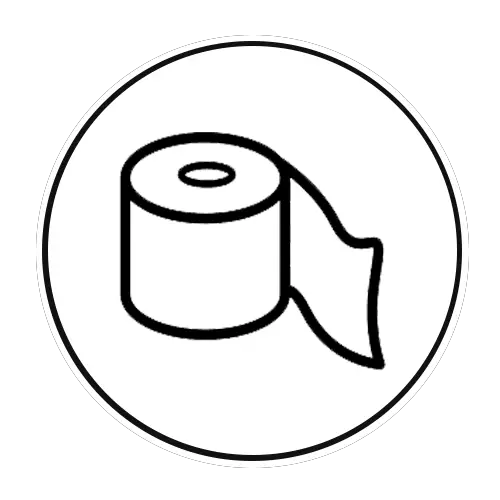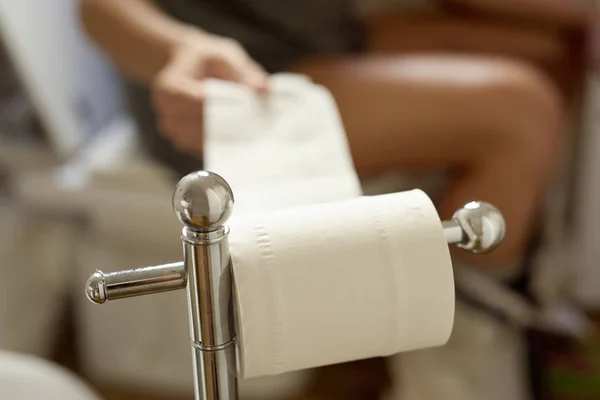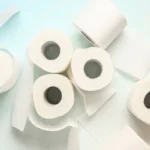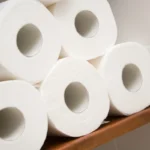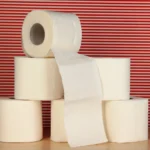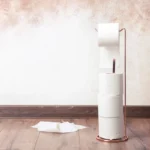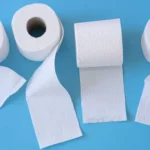We all know that toilet paper is one of the biggest drains on our planet. It’s also one of the easiest things to change. While we can’t eliminate toilet paper, we can opt for a more sustainable option, like bamboo toilet paper. So, how does this type of paper affect your pipes? It turns out that Bamboo has been used for many centuries as an absorbent material for cloth diapers and underwear because it naturally absorbs moisture quickly. This makes it perfect for making toilet paper because its absorbency allows you to use fewer daily sheets. But let’s first explore how does bamboo toilet paper blocking drain.
Anything that is not biodegradable can clog up a drain.
This includes toilet paper and wipes, both made from wood pulp. These items are highly absorbent, and when flushed down the toilet, they become very sticky in water and form a big wad blocking your Drain. You should never flush these items down the toilet as they will not break down in time to wash away with the rest of your waste material.
The easiest way to unclog your sink or tub is using a plunger or plumber’s snake (a metal snake-like tool). Place either device over the top of the drain hole, pump it up and down rapidly until all of the water has been removed, and then try flushing it again. If you still have problems with drainage or suction power on your showerhead or faucet spout, respectively.
Flushable wipes can block up drains as well.
Flushable wipes may effectively clean messes but can cause problems when flushed down toilets. These wipes don’t break down the same way as toilet paper, meaning they can get stuck in pipes and cause clogs. They’re also bad for the environment because they’re not biodegradable and require more resources to produce than traditional toilet paper does.
Bamboo toilet paper is super absorbent. It will take a long time to be flushed.
Bamboo toilet paper is not the solution if you want toilet paper that will not clog your Drain. Bamboo is considered a super absorbent type of tissue. Flushed takes a long time because it is so porous and tends to be longer than other toilet paper (think about those rolls in public restrooms).
The wrong type of toilet paper can cause problems.
Don’t use paper towels, tissues, or anything not designed to break down in the water. For example: if you buy bamboo toilet paper and your Drain starts to clog, it’s probably because the product did not pass the test for breaking down in the water.
It’s best to find toilet paper specifically designed for your home or ask a plumber what type of toilet paper they recommend. They will know best because they deal with clogs all the time.
The Issues with Bamboo Toilet Paper
Bamboo Toilet Paper is still a burden for forests.
Bamboo is grass, not a tree. The stems used to make toilet paper are the ones you see growing in your backyard. These bamboo stalks are invasive and take over native habitats and crowd out the trees in those areas.
It’s also not true that bamboo is a renewable resource. One of the biggest issues with using it as toilet paper is that it requires so much water during growth, which means there are few places on Earth where this could be considered sustainable. So it’s not just a simple burden to your bamboo toilet paper blocking drain.
It has a cost to wildlife.
While bamboo may seem like a natural resource, it has a cost to wildlife. The harvesting of bamboo can harm native species and ecosystems. Bamboo is home to many different animals, including birds and insects. For example, the Giant Panda is known to live in bamboo forests.
The harvesting of bamboo can also affect other plants in the area as well. It should be noted that harvesting means chopping down only some of the trees. Instead, it means cutting them down at specific times for specific reasons that help maintain healthy growth rates over time. This is without harming other plant life around them so much to cause mass extinctions from habitat loss or habitat fragmentation.
The Pulp and Paper Industry has a sordid history of deforestation.
The pulp and paper industry is the second largest consumer of wood in the world, responsible for over half of all deforestation. The demand for paper products has increased as people have become more affluent, but our forests are shrinking faster than their replenishment. If current rates continue unabated, we may lose all rainforests by 2050!
The Environmental Impact of Bamboo Toilet Paper goes beyond forests.
Bamboo is grass and not a tree. Bamboo has a fast growth rate and can grow up to 1 foot per day. It’s also native to China, where it’s been used for thousands of years for everything from building materials to food. Bamboo does not regenerate quickly or produce enough oxygen for its consumption. Bamboo requires constant planting efforts, which further pressures an already over-harvested resource.
Most Bamboo is processed in China and needs to be better regulated.
While BBamboo is a renewable resource, it has to undergo processes in a way that doesn’t harm the environment. In China, where most BBamboo is processed, there are no regulations regarding how much water or energy can be used during processing. This means that if you’re using bamboo toilet paper from China, you could be contributing to deforestation and other environmental issues such as soil erosion.
Tissue paper is designed to break down in the water and dissolve.
While it’s not flushable to your toilet, it can cause plumbing blockages if you choose to flush it down. Like many things flushed down toilets, tissue paper does not break down in the water as quickly as on land. This can lead to problems with your plumbing system over time and may even result in a blocked drain or sewer line if left unchecked.
The biodegradation of bamboo toilet paper benefits the environment.
One of the biggest benefits of using bamboo toilet paper is that it’s biodegradable. Since BBamboo grows in most parts of the world, there are no transportation costs from a different country or continent to import it into your home. The tree itself doesn’t require pesticides or fertilisers (like many other trees), which helps keep our environment healthy and clean!
Bamboo toilet paper is compostable once you’re finished with them! You’ll have less waste in landfills than with standard cardboard rolls due to their small size compared with regular TP rolls and the minimal packaging required. Since they come from organic material, they don’t need extra protection against moisture during shipping.
5 Bamboo Toilet Paper that’s not Blocking Drain
BrillaBoo
BrillaBoo is an eco-friendly brand. They use the bamboo pulp to make their toilet paper, which is soft and durable. The toilet paper is also biodegradable and made from non-recycled materials. This makes it a good option for people who want to leave behind a smaller environmental footprint when they use their bathroom facilities.
BrillaBoo uses bamboo pulp as the main ingredient in their toilet paper because of its high cellulose content, which allows it to be strong yet soft at the same time. It’s also important to maintain healthy skin since it has antibacterial properties thanks to its natural oils and sugars that prevent bacteria growth on your hands and inside your body after using this product!
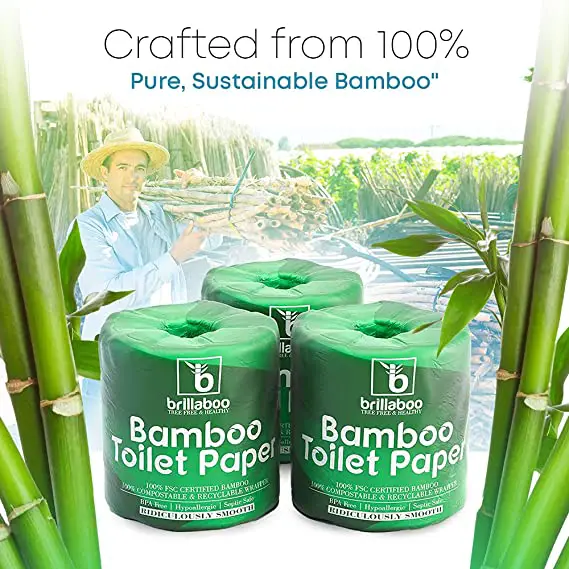
Mother Earth Organic Bamboo Toilet Paper
Mother Earth Organic Bamboo Toilet Paper is 100% organically grown, which means no chemicals or dyes come in during production. It’s also soft and firm, making it an excellent option for anyone looking to switch to bamboo TP.
The package contains two rolls that have 200 sheets each. Each roll measures 2.5 inches wide with a 10-inch core diameter. That’s 1/2 inch smaller than most standard rolls. The packaging is recyclable too!
As a bonus, this bamboo toilet paper does not contain microfibers – a fact we can all appreciate, given the recent news about how those tiny plastic pieces are clogging our drains and polluting our waterways. So no need to worry about bamboo toilet paper blocking drain.
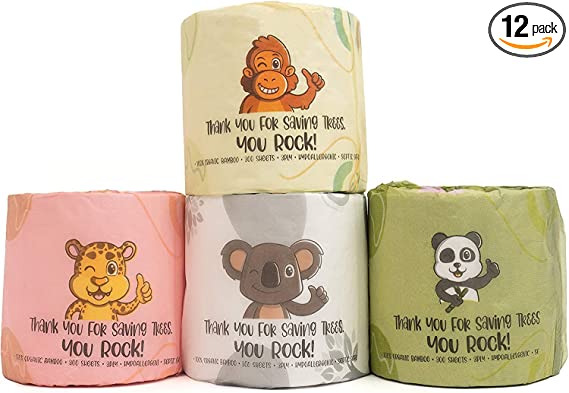
Nature’s Greatest Products Bamboo Toilet Paper
Nature’s Greatest Products Bamboo Toilet Paper is a 100% renewable resource, biodegradable, tree-free, compostable and chlorine and sulfate free. This toilet paper comes from bamboo pulp. This is a sustainable resource that has natural replenishment in an annual cycle.
The Sustainable Forestry Initiative (SFI) and the Forest Stewardship Council (FSC) have certified the company. They meet strict environmental standards in manufacturing this product such that it has enough replenishment over time without harming any forests or wildlife habitats.
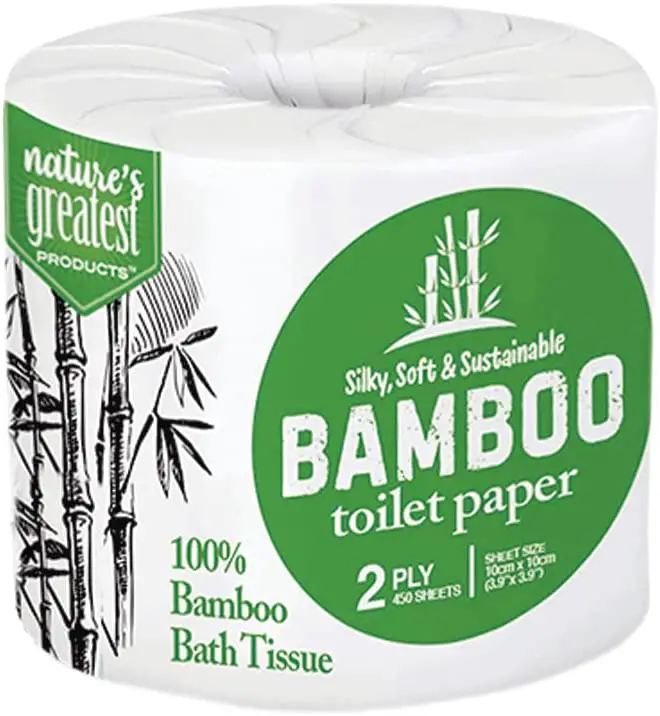
Pure Planet Club
Pure Planet Club is 100% bamboo toilet paper with no harmful chemicals that could harm the environment. It contains no chemicals, bleaches or dyes, and it’s organic.
This environmentally friendly company is committed to providing you with products from renewable resources such as bamboo. They also have other products you can use in the bathroom, such as bath towels, hand towels and washcloths made from bamboo.
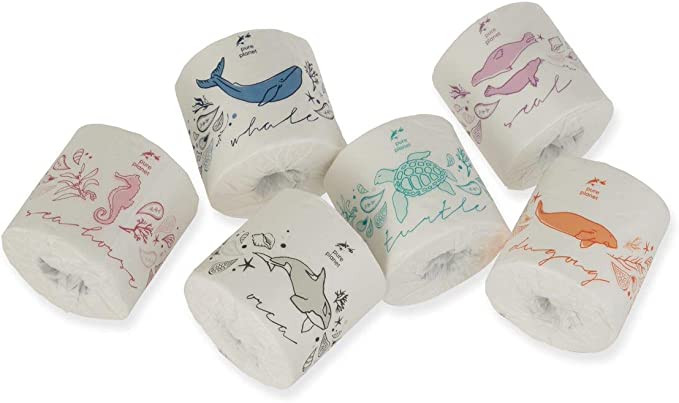
QL Enthusiast Bamboo Toilet Paper
QL Enthusiast Bamboo Toilet Paper is a clean, absorbent toilet paper that is 100% natural. It’s free of chemicals, dyes and perfumes, which means it isn’t going to clog your Drain! This eco-friendly toilet paper is also safe for your septic tank, which uses sustainable bamboo pulp. The QL Enthusiast Toilet Paper packaging uses recycled materials, so you can feel good about doing something good for our planet without sacrificing quality or comfort.
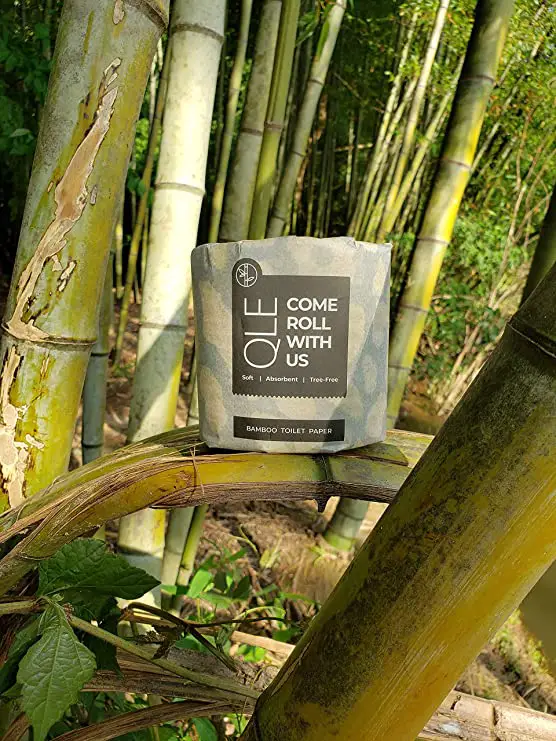
Conclusion
Bamboo toilet paper is gentle on your skin but can also clog up drains. When you use regular toilet paper and flush it down the Drain, any particles get caught by the water flow in your plumbing system. We hope we have shed some light on your question about how bamboo toilet paper blocks drain.
If you’re still looking for answers about Is Bamboo Toilet Paper Flushable, read this article.
